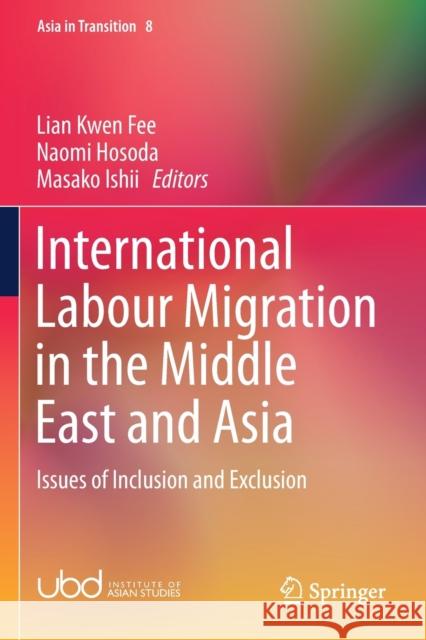International Labour Migration in the Middle East and Asia: Issues of Inclusion and Exclusion » książka
topmenu
International Labour Migration in the Middle East and Asia: Issues of Inclusion and Exclusion
ISBN-13: 9789811369018 / Angielski / Miękka / 2020 / 204 str.
International Labour Migration in the Middle East and Asia: Issues of Inclusion and Exclusion
ISBN-13: 9789811369018 / Angielski / Miękka / 2020 / 204 str.
cena 261,63
(netto: 249,17 VAT: 5%)
Najniższa cena z 30 dni: 250,57
(netto: 249,17 VAT: 5%)
Najniższa cena z 30 dni: 250,57
Termin realizacji zamówienia:
ok. 16-18 dni roboczych.
ok. 16-18 dni roboczych.
Darmowa dostawa!
The discourse on migration outcomes in the West has largely been dominated by issues of integration, but it is more relevant to view immigration in non-Western societies in relation to practices of exclusion and inclusion. Exclusion refers to a situation in which individuals and groups are usually denied access to the goods, services, activities and resources associated with citizenship. However, this approach has been criticised in relation to gender issues, which are very relevant to the situation of migrants. The authors in this volume address this criticism. Furthermore, when framed within a North–South discourse, it may be potentially ethnocentric to assume that the experience of exclusion is cross-culturally uniform. Indeed, work on migration issues has invariably been conducted within such a discourse. The contributors go beyond this binary discourse of ‘exclusion versus inclusion’ which has dominated migration research. They examine the situation of migrants in the Middle East and Asia as one that encompasses both exclusion and inclusion, addressing related concepts of empowerment, ethnocracy, the feminisation of migration and gendered geographies of power, liberal constraint and multiculturalism, individual agency, migrant-friendly discourses, spaces of emancipation and spaces of insecurity. The book highlights current research in the Arab Gulf states, and examines multiculturalism in Asia more broadly. It will be of particular interest to students and researchers in international labour migration studies in the Middle East and Asia.











